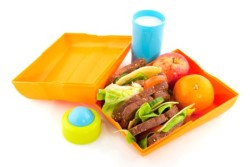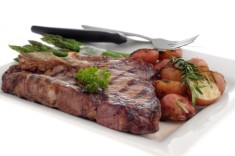How to Eat Better at Work AND Save Time and Money
 Monday, April 4, 2011 at 11:11AM
Monday, April 4, 2011 at 11:11AM  In my last post I introduced the concept of stimulus control: adding healthy food choices to your environment as well as removing trigger foods that tend to provoke eating in the absence of hunger (or overeating). While we have the most control over the food environment in our homes there is plenty that you can also do to set yourself up for success while you are away from home—at work—during the day.
In my last post I introduced the concept of stimulus control: adding healthy food choices to your environment as well as removing trigger foods that tend to provoke eating in the absence of hunger (or overeating). While we have the most control over the food environment in our homes there is plenty that you can also do to set yourself up for success while you are away from home—at work—during the day.



